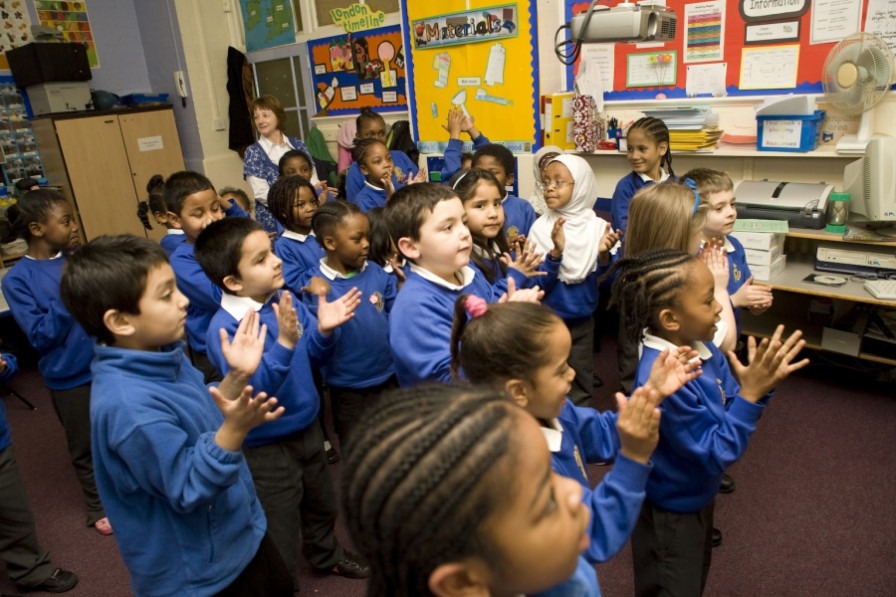Supporting the development of the new National Curriculum for Music

The new National Curriculum is due to be implemented in schools across England from September 2014. New curriculum, new opportunities.
Despite the protestations from the music education sector when the draft National Curriculum for Music was released, what we see published in the final form has only slightly moved on from the first draft and absolutely identical to the second draft. Nobody can say we didn't try though!
That's life - we have to work with what we are given. I've spent quite a lot of time deliberating over the new curriculum and am pleased to report that with a bit of creative interpretation, the curriculum potentially gives teachers the freedom to create a very musical education for their schools which is progressive, relevant and inspiring.
At the start of each year, I work with my new PGCE and School Direct music trainees on a blue-sky thinking exercise which unpicks their philosophy of music education and what they would like a curriculum to look like in order to be able to deliver these aspirations. Each year, I then proceed to point out how the National Curriculum for Music can be interpreted in order to meet these high expectations. As with the previous (now extinct) document, the 2014 curriculum is no exception.
So, in my usual practical-focussed way, I have developed some booklets entitled 'How to Prepare for the New National Curriculum' to help teachers to think about how they will develop the music in their own school or hub. These are available on the National Curriculum pages of the ISM website. There are separate guides for primary and secondary teachers.
These can be found at: www.ism.org/nationalcurriculum
Each guide has four sections:
- What's changed? What's new?
- What does this mean for the whole school curriculum?
- What materials and resources are available to you?
- Have you identied your gaps? What do you need to fill these gaps?
I can already hear the chorus of 'but how do I get others in my school to understand and recognise the importance of Music?' and 'but I'm still stuck assessing with ridiculous sub levels every half term' or 'music is largely ignored in my school because the teachers don't have the confidence to teach it'. Well, now is the time to challenge these perceptions and practices, and it is you who needs to take the initiative for this. It is up to us to show senior leadership that music makes a difference, day in day out. It is up to us to plan irresistable learning experiences (a phrase I have shamelessly borrowed from Alison Peacock at the Wroxham Teaching Alliance) and to find creative and musical ways to help inspire and motivate pupils; to help them recognise their learning and to use assessment more musically. And it is up to us to show, by example, how good a musical education can be. I know I am preaching to the converted here, but we need to make sure that we do all we can to help young people to develop a lifelong love of music which grows from their experiences in school, not in spite of them. And, of course, acknowledges and builds upon their experiences outside of the classroom. It may take a while to change these perceptions but perhaps there are things you can do to chip away at these little by little.
Hubs and schools have a lot to offer each other and I hope that these guides help hubs and school work together to develop their School Music Education Plan which I understand ACE require later this term. I have led inset training in two Music Education Hubs in the South East this week using these materials and the feedback about their usefulness has been that the sessions have 'generated a lot of discussions with music coordinators and that there has been a real feeling for change and progress'. I sincerely hope that you find them as useful...as ever, please send me your thoughts.
You may be interested to know that the primary phase document has been developed from an initial piece of work which I undertook with the local music education hub, SoundCity in Brighton and Hove. It was commissioned by the local primary school headteachers to help guide their curriculum and staff development. So, I read into this that there is an interest from some school leaders into developing music in school. I sincerely hope this is the case and that you see this time as an opportunity to do what you personally can in your own capacity to develop your own and others' practice in your setting, and develop young people's musical learning, engagement and love of music. That is, after all, why we are all doing this job. Isn't it?
